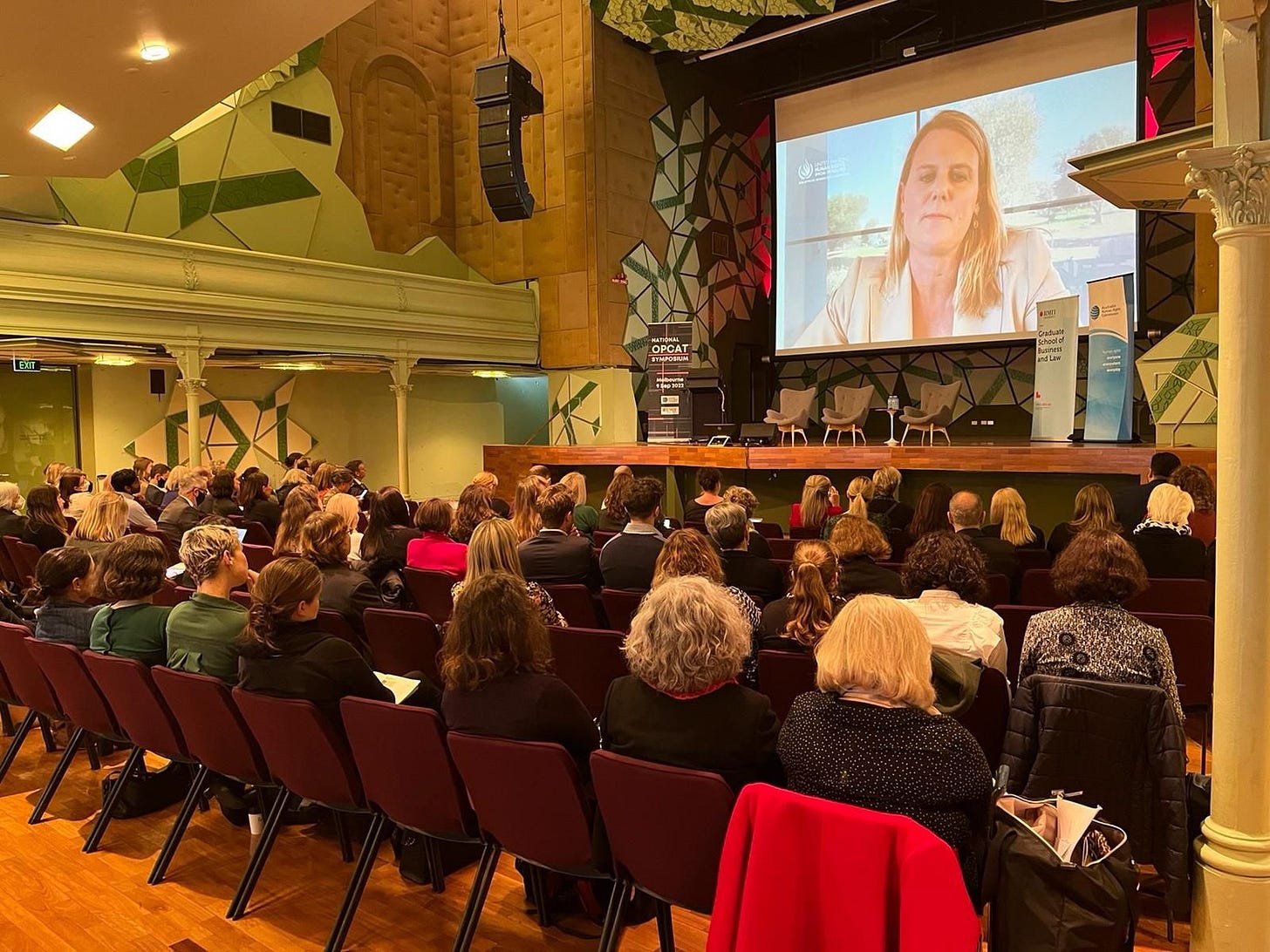‘All eyes are on you’: UN pleads with Australia to act on human rights
“Please do not let budgetary matters stand in the way of adhering to the absolute prohibition against torture”
The UN Special Rapporteur on Torture has pleaded with Australia to urgently implement its obligations under a treaty aimed at upholding the human rights of people in detention.
Australia’s biggest states appear unlikely to meet their obligations under the UN’s Optional Protocol to the Convention Against Torture (OPCAT) by the delayed deadline of 20 January next year, due to ongoing funding disputes with the Commonwealth government.
The New South Wales, Victoria and Queensland governments have said they will not act to launch independent prison inspectors - known as National Preventive Mechanisms (NPMs) - until ongoing funding is provided by the federal government.
Speaking at the Australian National OPCAT Symposium last week, UN Special Rapporteur on Torture and Other Cruel, Inhuman or Degrading Treatment or Punishment Dr Alice Edwards warned Australia that “all eyes are on you”, with the upcoming visit of the UN Subcommittee on the Prevention of Torture and Australia’s review by the UN Committee Against Torture later in the year.
“While appreciating there remain some budgetary questions, which I trust can be resolved quickly, I plead with those governments yet to come on board that please do not let budgetary matters stand in the way of adhering to the absolute prohibition against torture, and preventing acts of torture or inhuman treatment in your state,” Edwards said.
“I congratulate the states and territories that have already seen the wisdom of this preventive mechanism and have taken concrete action to designate or establish NPMs.”
These NPMs help countries to avoid complacency around human rights in places of detention, and to avoid an out of sight, out of mind mentality, Edwards said.
“NPMs can act as a warning system, an alert for when internal mechanisms break down,” she said.
“The capacity to make unannounced visits with full access to all spots in a detention facility, at any time, and to speak to any detainee, is a powerful deterrent to abuses, but moreover, has been found in other countries to be one of the strongest ways to improve conditions in detention and the humane treatment of detainees.”
In her speech, Edwards pointed to the high cost of incarceration in Australia, increasing prison rates across the country, a third of the prison population being on remand and the fact that Australia is the only industrialised country that mandatorily detains asylum seekers and putative refugees.
Australia has also been criticised for taking a significantly narrow approach to its OPCAT obligations, with places such as offshore immigration centres, secure residential aged care facilities and disability group homes not included for inspections.
Edwards urged jurisdictions to take a broad approach to what constitutes a place of detention.
“There are plenty of studies to show that trauma is intergenerational,” she said.
“So a former colony built on prison and prison labour that opts to ratify the OPCAT can only gain from a system of inspection bodies that are able to visit any place where persons are held against their will.”



